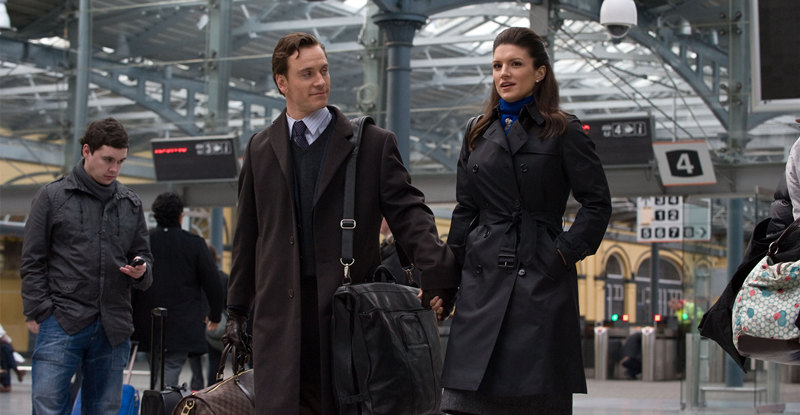In the ‘50s, drama meant melodrama, and there’s plenty of good melodrama in “Niagara,” a masterful bit of film noir suspense that’s worthy of Hitchcock. It’s directed by Henry Hathaway, better known for his Westerns. But Hathaway was no stranger to film noir, having earlier directed James Stewart in “Call Northside 777” and Victor Mature in “Kiss of Death.”
“Niagara” was released in 1953, the same year that star Marilyn Monroe appeared nude in Playboy as the magazine’s very first Playmate of the Month. Twentieth Century Fox made sure that her sensuality was played up in this drama, but Monroe also does a credible job as a femme fatale. Even as she’s fooling Canadian police into thinking she’s as shocked as anybody that an accident may have have befallen her husband (Joseph Cotten), she’s convincing viewers that she can play a dangerous blonde as well as she can a dumb one.
There are hokey moments, certainly—as when an overdressed Monroe emerges from her Niagara Falls cabin and walks into the midst of a younger crowd that’s dancing to a record player. She asks, in a sultry voice that seems equally out of place, if they could play a special record for her. And when that platter spins, out storms her husband. Like John Belushi’s famous “Animal House” guitar smashing, he makes short work out of that record and retreats to his solitude.
While we may not know the details, that scene introducing Rose and George Loomis as a couple quickly establishes a tension between them that will remind today’s viewers of George and Martha in “Who’s Afraid of Virginia Woolf?” The animosity (in one case) and ambivalence (in the other) is so palpable that you’re convinced anything might happen—even murder.
“Sure I’m meeting somebody, just anybody handy, as long as he’s a man! How ‘bout the ticket seller himself? I could grab him on the way out, or one of the kids with the phonograph. Anybody suits me. Take your pick.”
One young couple on a delayed honeymoon was supposed to stay in the Loomis’s cabin overlooking the falls, but when Rose tells them her husband isn’t feeling well because neither seems willing to leave just yet, the young people agree to take a less scenic cabin. No matter, because the kindness of Polly and Ray Cutler (Jean Peters, Max Showalter) sucks them into the Loomis’s drama so much that they really have little time to enjoy the view.
Although a subplot involving a corporate boss and his wife (Don Wilson, Lurene Tuttle) seems mostly engineered to provide a prop for the film’s climax, subplots really aren’t necessary. Monroe and Cotten are compelling enough as a husband and wife who’ve had it with each other, and more suspense comes from wondering to what degree their younger foils will be hurt along the way.
The Falls themselves are an ever-present backdrop, and as memorable (and integral to the plotting) as Mount Rushmore was in “North by Northwest.” It’s not as taut as that Hitchcock entry, but “Niagara” is a respectable and engaging film noir drama that offers several stylish suspenseful sequences. And surprisingly, Peters holds her own in scenes with Monroe, with the good girl/bad girl balance adding additional interest.
“Niagara” has a runtime of 89 minutes, and it’s not rated—though it would probably merit a G rating. There’s nothing terribly graphic, with Hathaway opting for more subtle (and I’d have to say equally effective) methods.
Video:
The box lists the screen size as 1.33:1, but it’s clearly 1.37:1. There’s just one moment in the film where there’s a flash of irregular banding. Other than that, “Niagara” looks great in HD, with a solid AVC/MPEG-4 (33 MBPS) transfer to a 50-gig disc providing rich-hued colors and only the slightest bit of filmic grain.
Audio:
The featured audio is an English DTS-HD MA 5.1, with the original Mono an option as DTS-HD MA 1.0, along with French DTS 5.1 and Spanish Dolby Digital 1.0. Subtitles are in English SDH, Spanish, and French. The rear effects speakers get involved mostly by conveying the rush of the Falls, but they do add a nice presence.
Extras:
The only bonus features are the theatrical trailer and a handful of other Monroe-on-Fox trailers.
Bottom line:
“Niagara” is quite a departure for Monroe, who proved she was up to the task of playing a femme fatale. As ‘50s film noir dramas go, it’s well above average.


